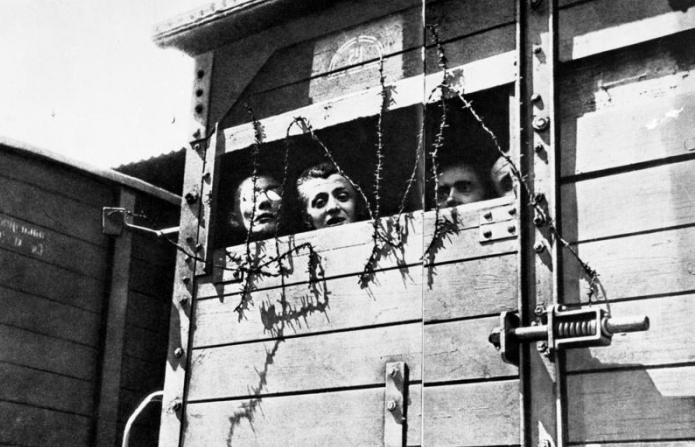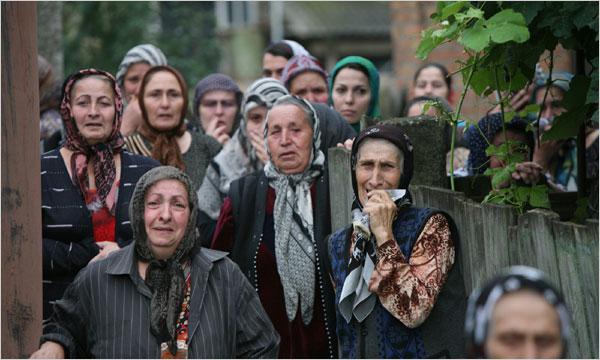The expulsion or expulsion of both individual individuals in particular, and peoples as a whole, was carried out quite often in world state practice, with much greater periodicity than it seems at first glance. Deportation is just that legal term, which means the removal of someone from the place of permanent residence. And with a preliminary charge: socially dangerous!
IN THE USSR
Deportation is an exile, a reference (from the Latin word "deportatio"). One of its main features, for example, in the USSR was often an out-of-court nature, as well as the movement of huge masses of people in distant geographically and unsuitable areas of the country. According to some historians, the deportation of peoples was carried out applicable to ten nationalities of the former USSR: Koreans, Finns, Germans, Kalmyks, Karachais, Chechens, Ingush, Crimean Tatars, Balkars, Meskhetian Turks. Moreover, some of them lost their national autonomies! But, in fact, many other - social and ethnic - categories of citizens of the Soviet Union were forced to relocate. Cossacks, fists, Chinese, Poles, Latvians, Estonians, Armenians, Tajiks ... In general, the scope, as always, is impressive!
History
One could say deportation is a policy of eviction and genocide. And it began in 1918-1925. forced displacement of the White Guard Cossacks, as well as large landowners. They were sent to Donbass, the North Caucasus and the Far North. Their land was transferred to the Ingush and Chechens.

In the 1930s, schools were still operating throughout the country, where teaching was conducted in languages of various nationalities. For example, in Leningrad newspapers were published in forty languages (including Chinese)! Radio broadcasts were also conducted in Finnish (there were a great many representatives of this nationality in the Leningrad Region). But somewhere in the mid-30s, the state abandons the previous national policy in favor of eliminating the political, cultural and ethnic autonomy of peoples. This is happening against the backdrop of a strict centralization of power in the country, the transition to repression against potential and real opposition. Arrests of Germans, Finns, Estonians and Latvians in Leningrad began. Local residents are forcibly evicted from border areas (the main part are Finns). Poles and Germans (fifteen thousand families - up to 65,000 people) are evicted from Ukraine, from territories that are adjacent to the border with Poland - to Kazakhstan and Karaganda. And at the end of the decade, the activity of publishing the press and literature in national languages was completely phased out, all national village councils and regions were gradually being eliminated.
The deportation of the Korean people
She was one of the first in the Union. And therefore - and the most unprepared. The eviction took place by force, with the help of the NKVD forces, in the “goods”, in the worst conditions, which led to the maximum number of victims along the route. As a result, 172,000 Koreans were expelled from the Far East (border) regions to Kazakhstan and Uzbekistan, to the virgin lands, to uninhabited territories. And how many people died!
German deportation
In 1941, in August, the Volga German Autonomous Republic was liquidated by a government decree. About four hundred thousand Germans were deported (and within two days) to the Urals, to Siberia, to Kazakhstan. Representatives of those peoples whose countries were members of the Hitler coalition (Finns, Bulgarians, Hungarians) were also subject to forced resettlement. And in 1942, about forty thousand people were deported from the frontline zone! Moreover, those who returned alive after the war were deported again in 1947-1948.
Deportation of Chechens and Ingush
In January 1944, L.P. Beria approved a special instruction on the procedure for the resettlement of these peoples to Kazakhstan and Kyrgyzstan. It is known that Beria personally led this criminal operation, in which, according to conservative estimates, up to one hundred and twenty thousand soldiers and officers, employees of the NKVD and other units took part. In February, he arrives in Grozny and meets with the leadership of the republic and spiritual leaders, offering to conduct preparatory work among the local population. And on February 23, an operation to forcibly evict an entire nation begins. The code word “Panther” (transmitted over the radio) sounded, which crossed out the future of many people. Deportation is always pain and tragedy.

But not everything went as smoothly as the NKVD expected. The resettlement of Chechens and Ingush from the local population was accompanied by multiple attempts to escape, disobeying the authorities. According to the NKVD, about seven thousand people managed to hide in the mountains, more than two thousand rebels were arrested, and about a thousand were killed. About twenty thousand rifles, machine guns and machine guns, and other firearms were seized by the "law enforcement" authorities, so to speak, during the operation. And this is only according to official data! We can say that the Chechen and Ingush peoples put up worthy resistance to the illegal violence of the then authorities.
Deportation of Crimean Tatars
The motivation for this illegal resettlement of an entire nation is quite common: cooperation with the Nazis during the occupation of Crimea and the subsequent social danger. The deportation of the Tatars began in May 1944. Subsequently, during the time of perestroika, it was recognized as criminal and illegal and was convicted in the USSR. It must be said that during the Second World War some Tatars did indeed side with the enemy, joining volunteer military formations created by the Nazis. But this event is not a reason for the eviction of all representatives of the people. But even the “good” Crimean Tatars, who fought in the ranks of the SA, who went through the entire war before the victory, were resettled (sent to deportation places) after demobilization. According to the NKVD, in Uzbekistan alone there were more than six thousand Tatar veterans, many of whom were previously even awarded by the government. Moreover, the settlers were given only some half an hour to gather (for some of them - a few minutes)! Sometimes they shot on the spot those who could no longer walk. Rarely fed on the road, kept without water. Transported in freight cars, without toilets, without amenities. The dead were hastily buried next to the railway track. There was no medical care, people started to get sick.
Such was the fate of many other illegally displaced peoples: Karachais, Kalmyks, Balkars, Azerbaijanis, Greeks, Turks, Armenians. Now it is already known that deportation caused irreparable damage to the economy and culture of the USSR. The authority of the government was also undermined, and the negative aspects of the policy in the sphere of the national question were manifested.
Justification (Rehabilitation Act 1991)
In accordance with it, peoples (as well as ethnic groups and other communities of people) are considered repressed, with respect to which at the state level - on the grounds of this or that affiliation - a policy of genocide and slander was carried out, accompanied by resettlement and destruction. All illegally resettled peoples were acquitted, rehabilitated and, if possible, returned to their original places of residence.
Modern Law (Law on Deportation 2014)
In the modern legal field, the term is synonymous with administrative expulsion. This punishment also applies to stateless persons. The deportation of foreign nationals consists in their voluntarily controlled departure outside the country in which they reside. According to the new law, entry into the territory of Russia is prohibited for more than half a million foreigners!
Migrants are also supposed to be deported if the rules for staying in the country stipulated by law are violated (basically it is a maximum of 90 days during six months, as well as ordinary wrongful offenses). For enterprises illegally hiring migrants to work, an increase in fines of up to one million rubles is envisaged. In repeated cases - sanctions, up to the closure of the company. In addition, a system of fines and even criminal punishment is also provided for the migrant himself!